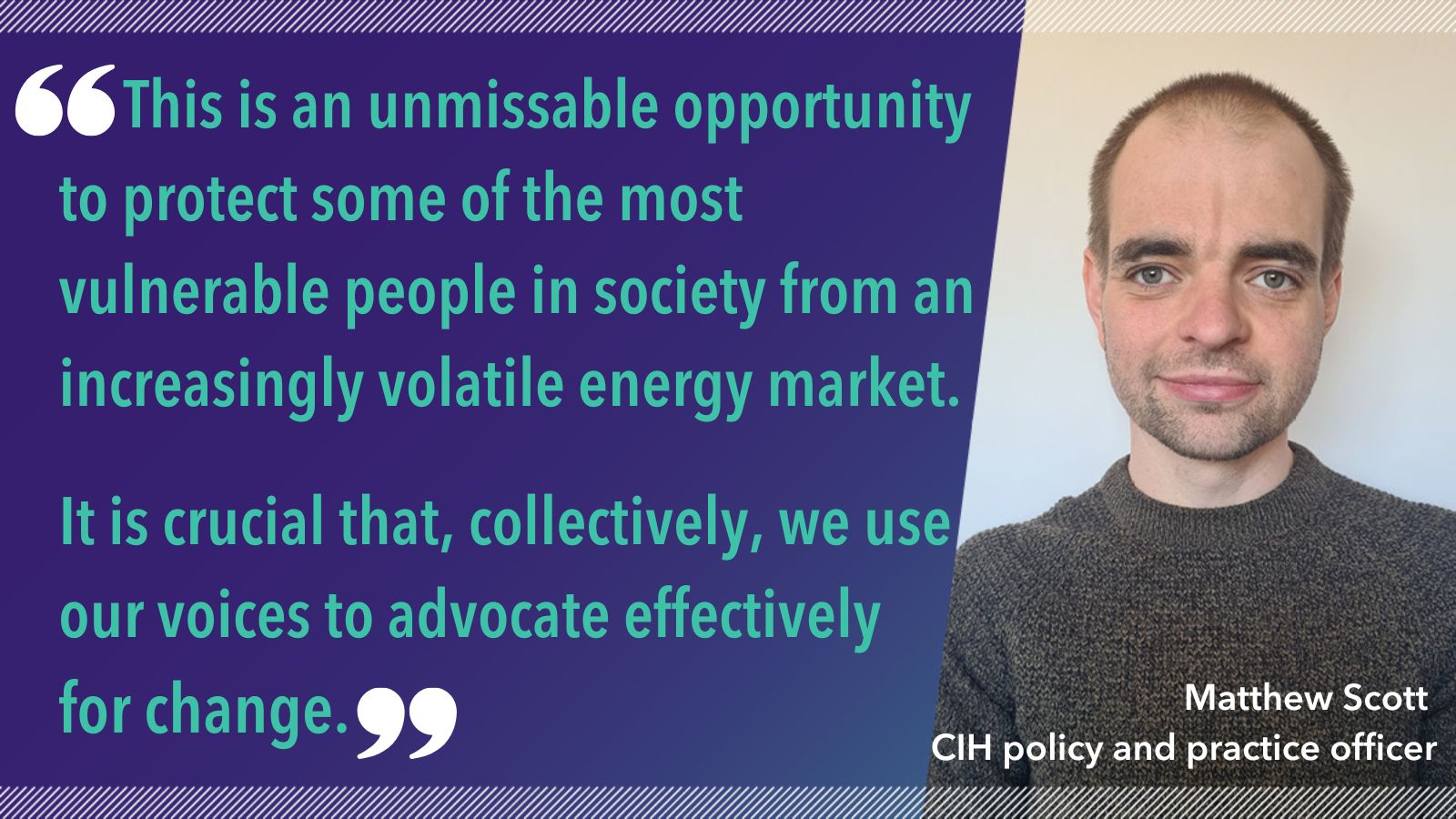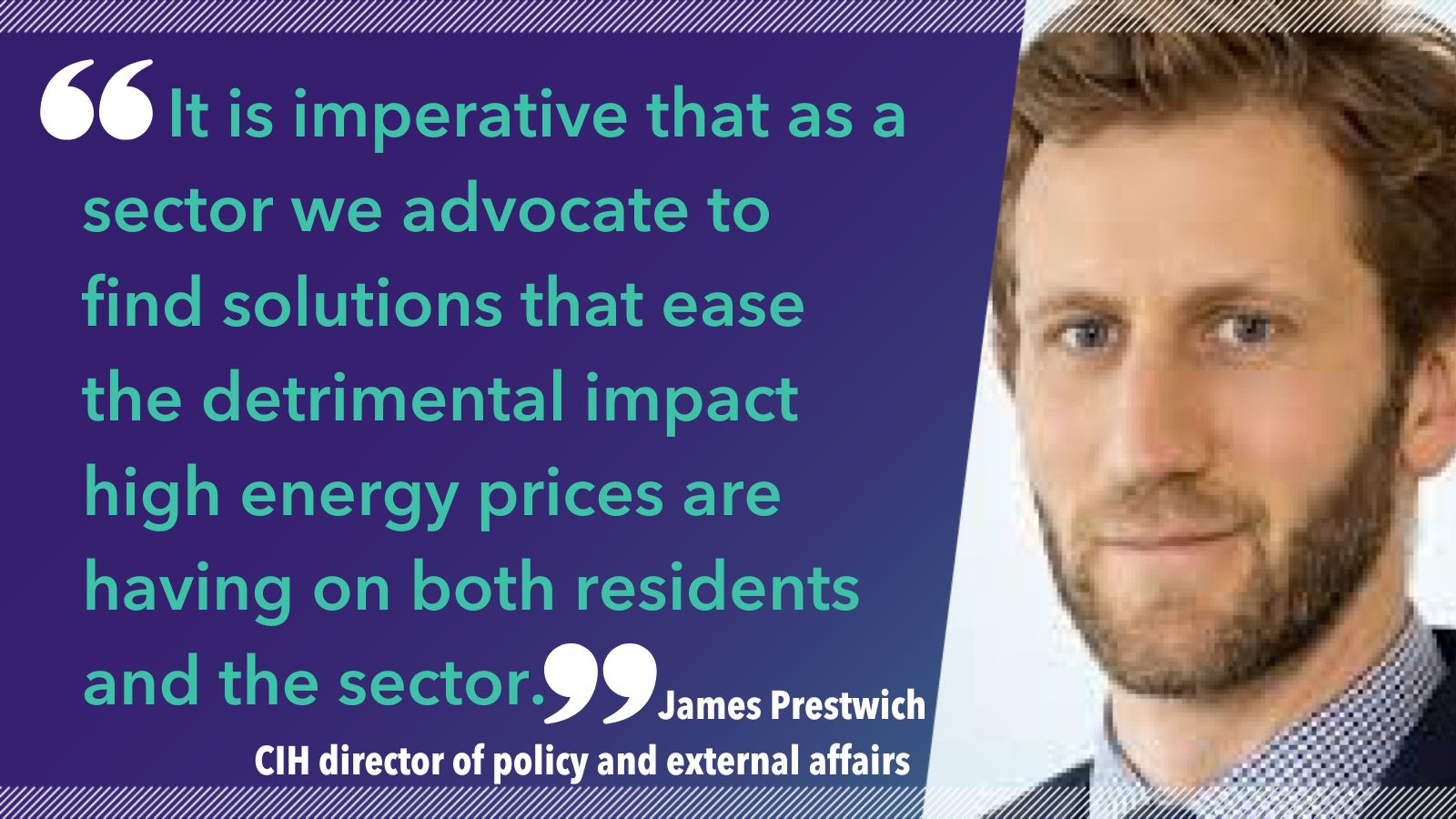CIH report highlights benefits of social energy tariff

The benefits a social energy tariff would provide for social housing providers and their residents have been outlined in a new report by the Chartered Institute of Housing (CIH).
‘A social energy tariff: the benefits of energy market reform for the social housing sector’ describes and analyses the positive outcomes a social energy tariff would have for residents and providers alike, showing why social housing providers should support and advocate for its introduction.
It surmises that a social energy tariff would offer at least four benefits to the social housing sector by:
- Making energy affordable for low-income, vulnerable, and fuel poor social housing residents
- Reducing the incidence of asset management issues requiring costly repairs and maintenance
- Improving tenancy sustainability
- Contributing to the decarbonisation of social housing stock by making heat pumps and other forms of electric heating affordable to run for residents.
CIH is urging its members, and the wider social housing sector, to understand the wide-ranging impact and benefits a social energy tariff would provide ahead of an anticipated government consultation on the social tariff, expected in summer 2023.

Matthew Scott, policy lead on net zero at CIH, said: “Last winter was one of the worst on record, with soaring gas and electricity prices making energy unaffordable for millions of people, creating unprecedented levels of fuel poverty. While social housing providers rose to the challenge of providing support for residents who needed it most, the prospect of energy prices remaining high for the rest of the decade means we desperately need a long-term, sustainable solution.
“The introduction of a social tariff in the energy market could provide a life changing difference to social housing residents struggling to keep their homes warm. It is vital that as the government prepares to consult on the design of the tariff, the sector understands the benefits not only to residents but also to social housing organisations.
“This is an unmissable opportunity to protect some of the most vulnerable people in society from an increasingly volatile energy market. It is crucial that, collectively, we use our voices to advocate effectively for change.”
James Prestwich, director of policy and external affairs at CIH, added: “In the current high-inflationary environment, those on the lowest incomes continue to be hit the hardest. It is imperative that as a sector we advocate to find solutions that ease the detrimental impact high energy prices are having on both residents and the sector.
“I encourage everyone in the sector to read this report to understand the positive impact a social energy tariff could have for their residents and organisations.”








